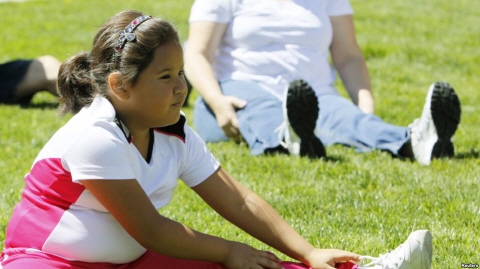
[전문 + mp3] / [받아쓰기]
Getting a good night’s sleep tonight could guard children against weight gain in the future. According to a new study, putting preschoolers in bed by 8 p.m. could reduce their chances of becoming overweight or obese later in life by half. Preschoolers are children around the age of 4 or 5. The term ‘obese’ refers to calculations of your Body Mass Index, what doctors call BMI. They use a person’s height, weight and age to assess their amount of body fat. BMIs help tell whether a person is underweight, normal, overweight or obese. The World Health Organization says obesity can lead to serious long-term health problems like diabetes, heart disease and stroke.
* get[have] a good night's sleep = 충분히 숙면을 취하다/ guard against ~ = ~이 생기지 않도록 조심[경계]하다/ preschooler = 취학 전의 아동; 보육원[유치원] 아동/ overweight = 과체중의, 비만의/ obese = 비만인/ by half = 반으로, 반을, 절반만/ refer to ~ = ~와 관련 있다[~을 나타내다]/ calculation = 계산, 산출/ body mass index = 체질량 지수/ assess = (특성・자질 등을) 재다[가늠하다]/ body fat = 체지방/ diabetes = 당뇨병/ stroke = 뇌졸중
Researchers from the Ohio State University’s College of Public Health have found that young children who go to bed after 9 p.m. are twice as likely to be obese later in life. The researchers wrote their findings in The Journal of Pediatrics. The lead author of the study is Sarah Anderson. She is an associate professor of epidemiology. She studies how diseases spread and how they can be controlled. Anderson says that, for parents, the results of the study support the importance of creating a bedtime routine. She says that having a usual bedtime routine is something “families can do to lower their child's risk” of becoming overweight. A usual, early bedtime, Anderson adds, “is also likely to have positive benefits on behavior and on social, emotional and cognitive development."
* likely to ~ = ~할 것 같은/ pediatrics = 소아과(학)/ lead author = 주요 필자/ epidemiology = 역학(疫學), 전염병학/ lower = ~을 내리다[낮추다]/ cognitive development = 인지 발달












